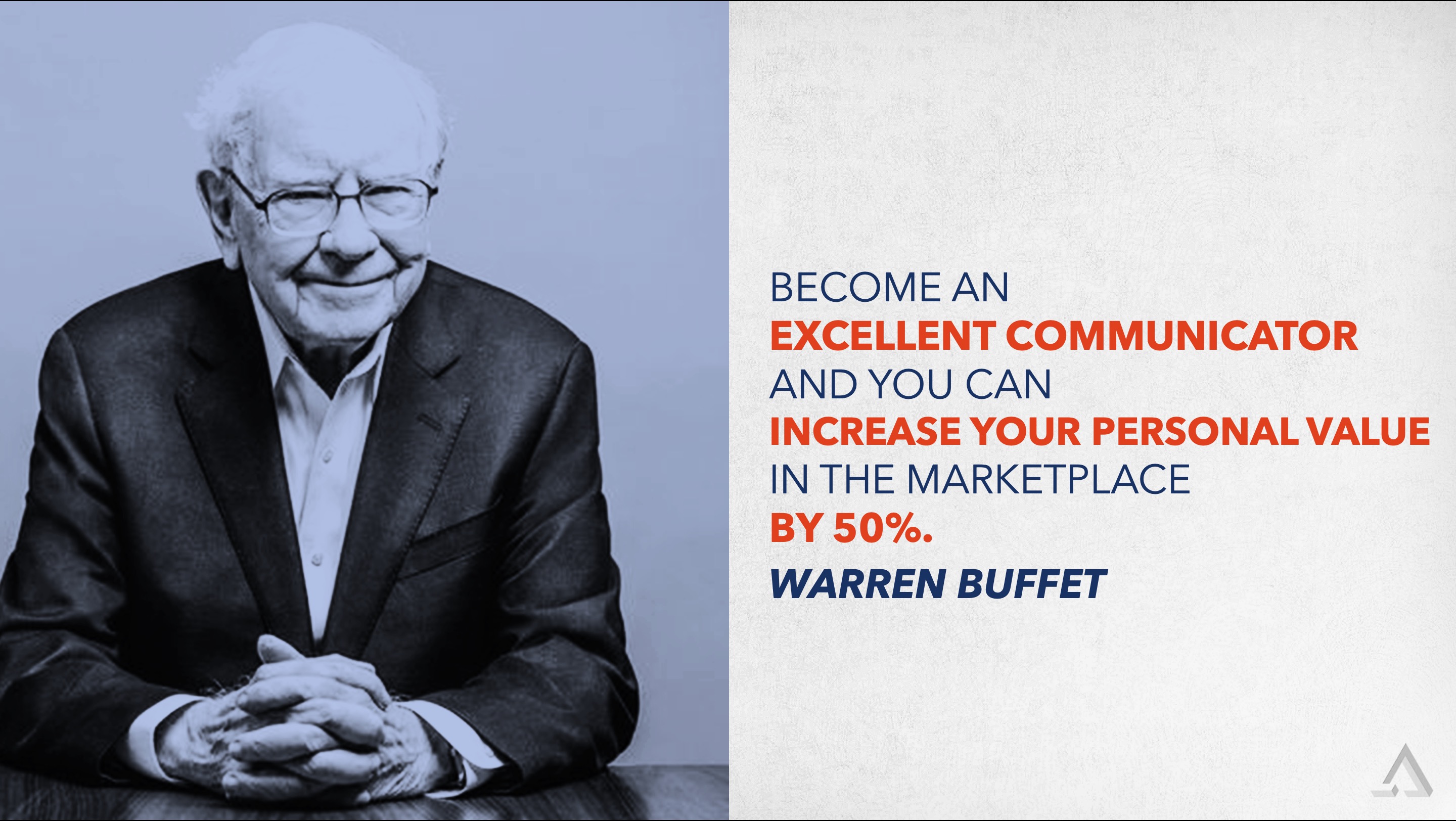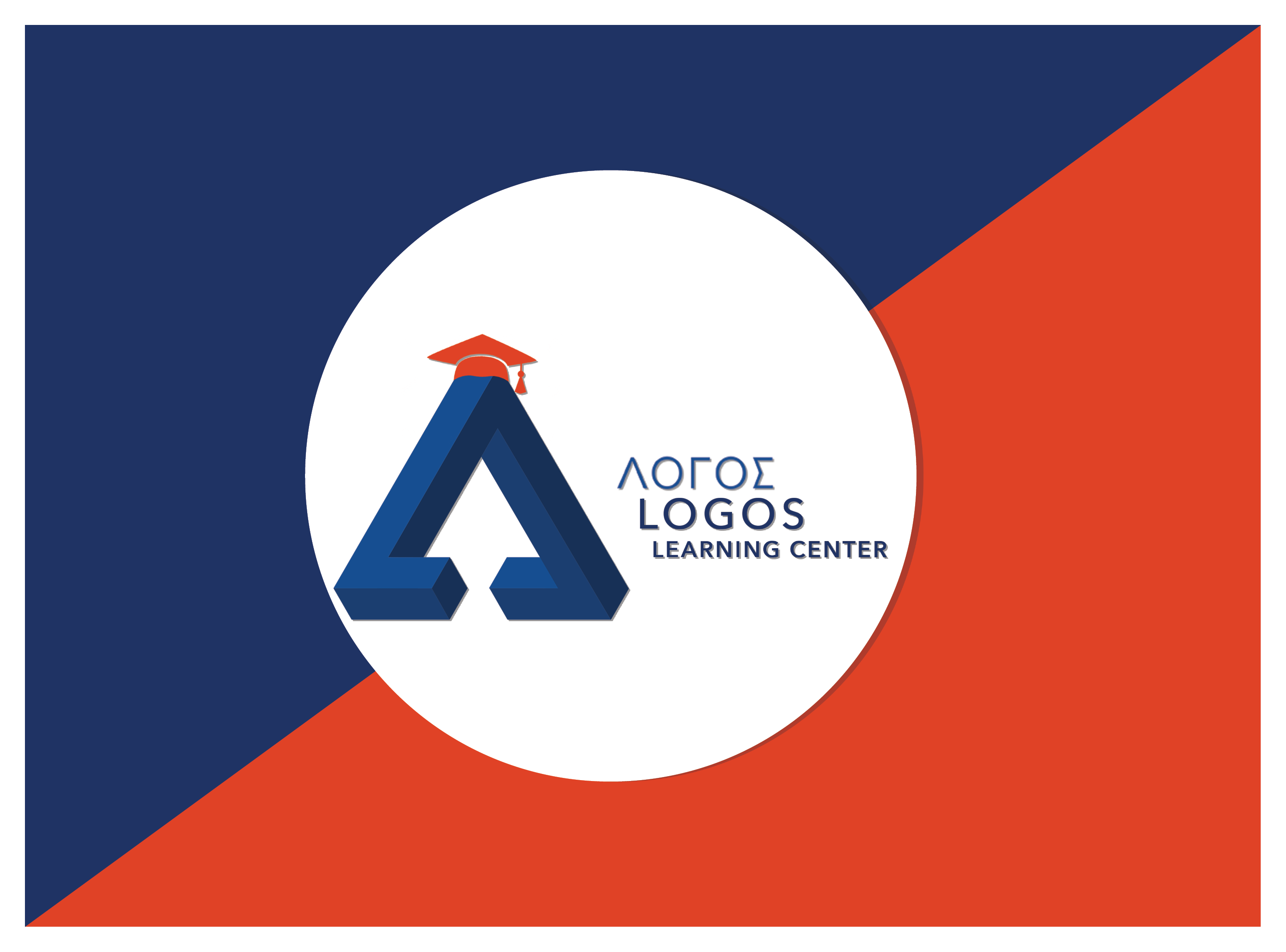Nearly every rising business leader can talk to you about their technical skill (read: job) until they (and you) are blue in the face. It’s what they do and what they are good at.
But technical skills, also referred to as “hard skills,” can only get you so far in a competitive environment. That is why accomplished business leaders are committed to strengthening their “soft skills.”
Why soft skills matter
“Soft skills” are those interpersonal and communication skills that help you translate your hard skills to build trust and convince those who matter most to work with you.
Take the Oracle of Omaha, CEO of Berkshire Hathaway Warren Buffett. Buffett is one of the most successful investors in the world, and also one of the wealthiest people in the world. He is also one of the best communicators in the world – but that wasn’t always the case.
Early in his career, Buffett learned that he was really good at picking stocks. However, he was also really bad at getting people to care that he was good at picking stocks. This is in part because, at the time, he would simply approach people with the facts: “Here is my investment record.” Simply showing his investment record did not help Buffett convince people to listen to him. He was also afraid of public speaking.
He realized quickly that his business education had failed him for this particular leadership challenge. In a 2019 interview with CNBC, Buffet explained that “in graduate school, you learn all this complicated stuff, but what’s really essential is being able to get others to follow your ideas.”
He knew that he needed to find a course that can help him inspire people to follow his advice and ideas. Therefore, in 1952 he enrolled in the Dale Carnegie Course in Effective Speaking, Leadership Training, and the Art of Winning Friends and Influencing People. In the course, Buffett was put through a variety of seemingly crazy and uncomfortable tasks. But when he left that course, he was equipped with powerful soft skills to help him advance in his career. And they did.
Buffett attributes much of his success to his investment in building these skills and to this day, he displays his certificate of completion for this course in his office.
Buffett understood that to get people to follow your ideas, you need to invest in building up your soft skills, including the ability to communicate effectively. “If you’re a salesperson, you want people to follow your advice. If you’re a management leader, you want them to follow you in business,” Buffett explained to CNBC. “Whatever you do, good communication skills are incredibly important and something that almost anybody can improve upon, both in writing and speaking.”
Two years ago, Buffett returned to his alma mater and addressed the graduating class of Columbia Business School. During his remarks, he explained that you can improve your personal value in the marketplace by 50% if you invest in the soft skills.

Our team at Logos couldn’t agree more. We have seen time and again how a person’s ability to inspire, explain, and motivate helps them advance more quickly in their careers and become a stronger leader.
The key lesson
Hard skills are not enough to advance in your career. If you want to succeed, grow, and advance in your career and leadership, invest in the soft skills.
–30–
Did you find this article helpful? Sign up for one of our Logos Learning Center webinars, where you can learn more about how you can reach your leadership potential. Learn more at www.logos-consutling.biz.
Reach out today for personalized coaching by visiting www.logosconsulting.net or email the author directly at [email protected].
 About Maida K. Zheng
About Maida K. Zheng
Maida is an Advisor at Logos Consulting Group and a Senior Fellow at the Logos Institute for Crisis Management and Executive Leadership, where she helps corporate leaders maximize presence and enhance communication skills to become more effective in managing both their reputations and relationships. She also serves as the Chief of Client Services.
 About Logos Consulting Group
About Logos Consulting Group
Leaders change the world. But they don’t do it alone. They ignite others toward a common cause.
At Logos Consulting Group, we believe in this world and we see this world in the work that we do. Our mission is to build a better world by equipping people to become leaders who ignite change in the world for the good.
We do this by helping our clients inspire those who matter to them to make a difference in their own industries and communities, and the world at large. We advise and coach our clients in three key areas: crisis management; crisis communication; and executive coaching.


 About Maida K. Zheng
About Maida K. Zheng About Logos Consulting Group
About Logos Consulting Group This week, the Logos Consulting Group launched our new online learning platform, the Logos Learning Center. The Logos Learning Center is designed to help everyone bolster their leadership skills so that they can ignite and inspire those who matter to them to create positive change in the world.
This week, the Logos Consulting Group launched our new online learning platform, the Logos Learning Center. The Logos Learning Center is designed to help everyone bolster their leadership skills so that they can ignite and inspire those who matter to them to create positive change in the world. NEW YORK (January 11, 2021) – Today, Logos Consulting Group announced the launch of a new online learning platform, the Logos Learning Center. The Learning Center is designed to help everyone bolster their leadership skills so that they can ignite and inspire those who matter to them to create positive change in the world.
NEW YORK (January 11, 2021) – Today, Logos Consulting Group announced the launch of a new online learning platform, the Logos Learning Center. The Learning Center is designed to help everyone bolster their leadership skills so that they can ignite and inspire those who matter to them to create positive change in the world.